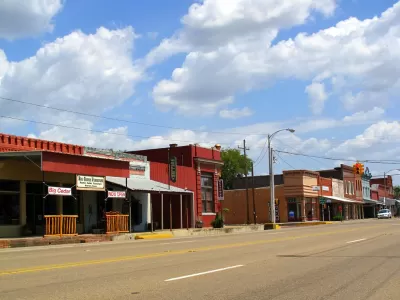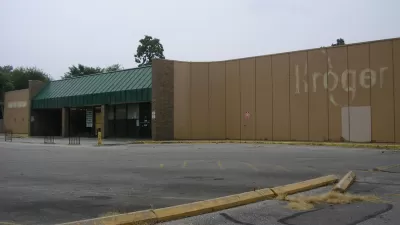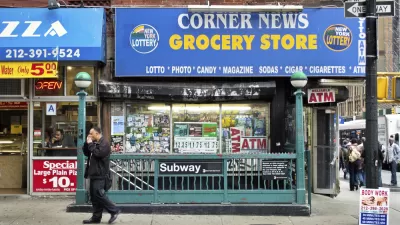When a town doesn’t have a grocery store, it means people don’t have access to food. But grocery stores also play an essential social and economic role in rural places. Community stores are trying to fill in the void.

Jack Healy writes about the growing problem of food deserts in small towns across the country as grocery stores shut down and dollar stores proliferate. "The loss of grocery stores can feel like a cruel joke when you live surrounded by farmland. About 5 million people in rural areas have to travel 10 miles or more to buy groceries, according to the Department of Agriculture."
Some communities are responding by starting up what are referred to as "community stores," essentially co-ops that are stocked with staples but also sell locally produced products. A few states offer financial assistance, such as tax credits and loans, for small-town markets in food deserts. "But mostly, the people setting up crowd-funding sites to buy vegetable coolers and negotiating wholesale rates with huge grocery chains say they are stumbling around with little assistance and no map," says Healy.
In additional to the financial challenges, organizers say getting these operations off the ground is not easy. For one, they have to convince residents to stop shopping at Walmart and dollar stores, and they have to find wholesalers who will provide them the stock they need. But, they say, grocery stores are key to keeping these towns alive. "Their exodus has left rural towns worried about how they can hold on to families, businesses and their future if there is nowhere to buy even a banana," notes Healy.
FULL STORY: Farm Country Feeds America. But Just Try Buying Groceries There.

Planetizen Federal Action Tracker
A weekly monitor of how Trump’s orders and actions are impacting planners and planning in America.

Map: Where Senate Republicans Want to Sell Your Public Lands
For public land advocates, the Senate Republicans’ proposal to sell millions of acres of public land in the West is “the biggest fight of their careers.”

Restaurant Patios Were a Pandemic Win — Why Were They so Hard to Keep?
Social distancing requirements and changes in travel patterns prompted cities to pilot new uses for street and sidewalk space. Then it got complicated.

Platform Pilsner: Vancouver Transit Agency Releases... a Beer?
TransLink will receive a portion of every sale of the four-pack.

Toronto Weighs Cheaper Transit, Parking Hikes for Major Events
Special event rates would take effect during large festivals, sports games and concerts to ‘discourage driving, manage congestion and free up space for transit.”

Berlin to Consider Car-Free Zone Larger Than Manhattan
The area bound by the 22-mile Ringbahn would still allow 12 uses of a private automobile per year per person, and several other exemptions.
Urban Design for Planners 1: Software Tools
This six-course series explores essential urban design concepts using open source software and equips planners with the tools they need to participate fully in the urban design process.
Planning for Universal Design
Learn the tools for implementing Universal Design in planning regulations.
Heyer Gruel & Associates PA
JM Goldson LLC
Custer County Colorado
City of Camden Redevelopment Agency
City of Astoria
Transportation Research & Education Center (TREC) at Portland State University
Camden Redevelopment Agency
City of Claremont
Municipality of Princeton (NJ)





























